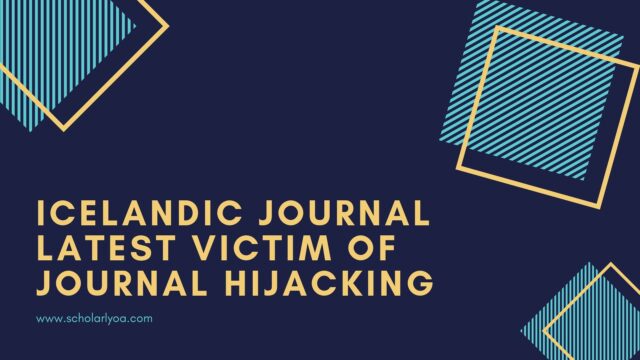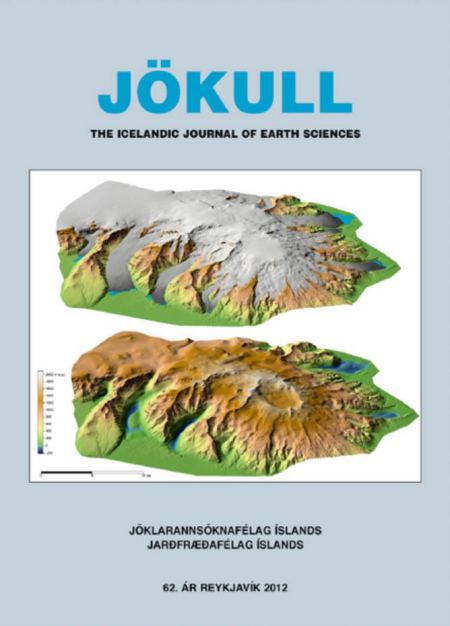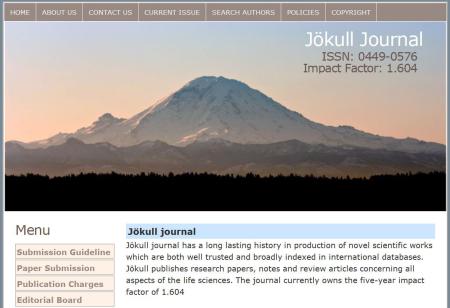
The old print journal Jökull, published in Iceland since 1951, has been hijacked. The hijackers set up two bogus web sites for the journal and are accepting article submissions.
In earlier blog posts, I reported the identity thefts of two print journals, namely, Archives des Sciences and Wulfenia. In a journal hijacking, the culprits target a respected print journal that does not have a prominent website. Then they create a new website, stealing the identity of the legitimate journal.
Their goal is to steal the reputation and brand value of the journal and then invite submissions to the counterfeit online journal, charging authors fees to publish their articles there.

There are two impostor websites for this journal:
http://www.Jokuljournall.com
http://jkljournal.org/en/
Jökull means glacier. Some issues of the original journal have the subtitle “Iceland journal of earth sciences.” The journal is published by the Icelandic Glaciology Society (Jöklarannsóknafélag Íslands) and has a minimal web presence here. The society has been trying to get the offending websites closed down, but without success. It is not able to afford an attorney to assist with this. On Friday, August 9, I learned that the legitimate journal has this brand-new website.
The scammers are getting increasingly sophisticated. For instance, the “whois” or domain name registration data for the bogus Jökull website looks legitimate, with a registration address in Reykjavik.
I was told about this hijacking by Mihai Musteata, who left a comment here on this blog. I confirmed that the impostor websites are indeed bogus by contacting the National and University Library of Iceland.

The impostor website shows a mountain that may not even be in Iceland and prominently displays the impact factor, an enticement to get article submissions and their accompanying fees.
Traditional print journals that lack websites should consider creating journal websites to help prevent future journal hijackings such as this one.
Hat tip: Mihai Musteata.
Thank you to the National and University Library of Iceland.







